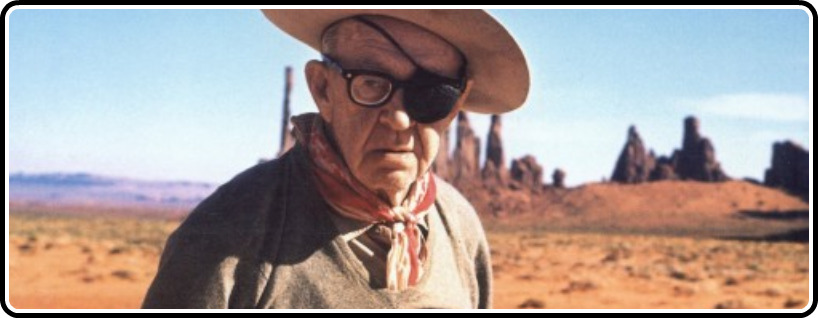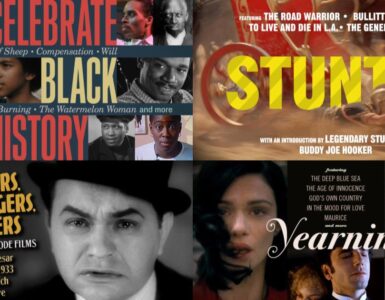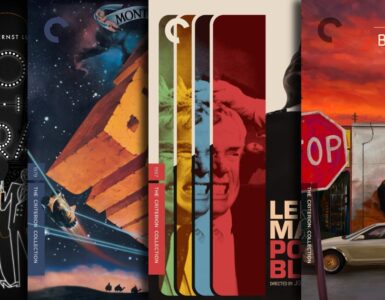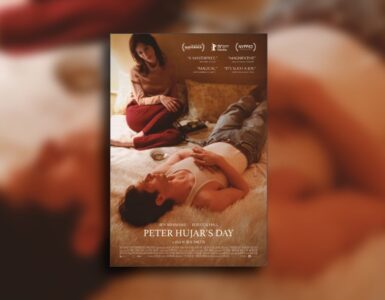Talk about a treasure chest of films.
Over the weekend, a massive collection of early U.S. films, clocking in at a robust 75 films, was discovered in a vault in New Zealand. According to Variety, the collection of films will be preserved by the New Zealand Film Archive and National Film Preservation Foundation, along with the help of the Academy of Motion Picture Arts and Sciences, George Eastman House, UCLA Film and Television Archive, as well as the Library of Congress, and the Museum of Modern Art to boot.
Among the films, there are films showing such things as how hats are made by Stetson, how someone can set an underwater explosive, and a neo-commercial for a Ford tractor trailer. However, the most interesting piece is not something like that at all.
Uncovered in this collection is an early film from the filmography of John Ford. Upstream, a film previously thought to have been lost, as the silent work of Ford is only said to be roughly 15% complete and available. Yet another Ford feature, Strong Boy, had a trailer that was also uncovered, making this one hell of a massive hall of classic cinema.
Personally, not only is this a massive story for any cinephile, it’s also quite an interesting story if you have a love of history. While some of these are just short films, one reel comedies, or long form commercials, they still give light to an era of film that is not only highly influential in the history of cinema, but one that has lost a lot of its catalogue to history. Films like Won in a Closet, which is the first film found directed by actress Mabel Normand, show that not quite all of the work from the early era of film has yet been found. Oh, and a new John Ford film doesn’t hurt either. The man is a titan in the history of film, so any new film from his canon is not only a welcome discovery, but a piece that should be seen. I know I can’t wait for this thing to find some sort of release. Criterion, if you are reading this, please, get on the phone, and nab up the rights to this thing, if they are available.
Source: Variety (list below from Collider.com)
* ‘The Active Life of Dolly of the Dailies,’ Episode 5, ‘The Chinese Fan’ (Edison Manufacturing Co., 1914). In this episode of the famous serial (previously entirely lost in the United States), ace woman reporter Dolly Desmond, played by Mary Fuller, rescues the editor’s daughter from kidnappers and gets the scoop. In the early 1910s, on-going serial narratives starring intrepid heroines lured female moviegoers back to the theater week after week.
* ‘The Better Man‘ (Vitagraph Company of America, 1912), a Western in which a Mexican American outlaw proves himself the better man. This film will be preserved through funds raised in February by the ‘For the Love of Film’ Blogathon.
* ‘The Big Show‘ (Miller Brothers Productions, 1926), the only surviving fiction film made by the famous Oklahoma-based Wild West Show managed by the Miller Brothers. The film showcases performances by many of the troupe’s performers as well as its owner, Col. Joseph Miller.
* ‘Billy and his Pal‘ (George Méliès / American Wild West Film Company, 1911), a Western filmed in San Antonio, Texas, and the earliest surviving film featuring Francis Ford. The actor-director introduced the movie business to his younger brother, John, who soon blossomed as director. Released in New Zealand as Bobby and his Pal.
* ‘Birth of a Hat‘ (Stetson Company, 1920), an industrial short illustrating how Stetson makes its hats.
* ‘The Diver‘ (Kalem Company, 1916), a documentary showing how to set underwater explosives.
* ‘Fordson Tractors‘ (Ford Motor Co., 1918), an industrial film promoting the all-purpose tractor introduced by Henry Ford & Son in 1917.
* ‘The Girl Stage Driver‘ (Éclair-Universal, 1914), an early Western filmed in Tucson, Arizona. American-made Westerns were in demand by movie audiences around the globe and helped establish the United States as the major film-exporting nation by the late 1910s.
* ‘Idle Wives‘ (Universal Moving Pictures, 1916), the first reel of a Lois Weber feature in which a film inspires three sets of moviegoers to remake their lives. More of the film exists at the Library of Congress.
* International Newsreel (ca.1926), newsreel including five stories from the United States and abroad. By the late 1910s, newsreels became a regular part of the movie program. Because the footage was usually cut up and reused, very few newsreels from the silent era survive in complete form.
* ‘Kick Me Again‘ (Universal Pictures / Bluebird Comedies, 1925), a short comedy with Hungarian silent star Charles Puffy. As America became the center of world film production in the 1920s, European actors, such as Puffy, came to Hollywood to build their careers.
* ‘Little Brother‘ (Thanhouser Film Corporation, 1913), one of two one-reelers from New York’s Thanhouser Company repatriated through the project.
* ‘Lyman Howe’s Ride on a Runaway Train‘ (Lyman H. Howe Films, 1921), a thrill-packed short entertainment that was accompanied by sound discs which survive at the Library of Congress.
* ‘Mary of the Movies‘ (Columbia Pictures, 1923), Hollywood comedy about a young woman seeking stardom in the movies. This first surviving film from Columbia Pictures exists in an incomplete copy.
* ‘Maytime‘ (B.P. Schulberg Productions, 1923), a feature with Clara Bow in an early role. Nitrate deterioration has reached the point where ‘blooms’ are starting to eat away at the emulsion.
* ‘Midnight Madness‘ (DeMille Pictures, 1928), comedy starring Clive Brook as a millionaire who decides to teach his golddigging fiancée a lesson.
* ‘Run ‘˜Em Ragged‘ (Rolin Films, 1920), a short featuring slapstick comedian Snub Pollard.
* ‘The Sergeant‘ (Selig Polyscope, 1910), a Western filmed in Yosemite Valley when the area was managed by the U.S. Army. This film will be preserved through funds raised in February by the ‘For the Love of Film’ Blogathon.
* Trailer for ‘Strong Boy‘ (Fox Film Corporation, 1929), a ‘lost’ feature directed by John Ford and starring Victor McLaglen as a courageous baggage handler who thwarts a holdup. No other moving images from this film survive.
* ‘Upstream‘ (Fox Film Corporation, 1927), a feature directed by four-time Academy Award winner John Ford. Only 15% of the silent-era films by the celebrated director are known to survive. This tale of backstage romance stars Nancy Nash and Earle Foxe.
* ‘Why Husbands Flirt‘ (Christie Comedies, 1918), one of the nine short comedies that will be preserved through this project.
* ‘The Woman Hater‘ (Power Picture Plays, 1910), a one-reel comedy starring serial queen Pearl White.
* ‘Won in a Closet‘ (Keystone Film Company, 1914), the first surviving movie directed by and starring Mabel Normand. Released in New Zealand as Won in a Cupboard.







1 comment